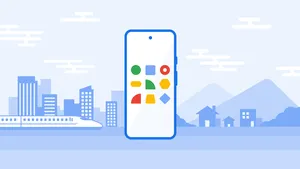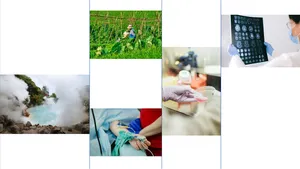Supporting India’s digital health transformation

At Google for India earlier today, we showcased our commitment to helping the country harness the benefits of technology and AI to help transform the health of this large and diverse population. We’re focusing our efforts on three key areas: helping strengthen health infrastructure; empowering health consumers; and partnering on healthcare delivery.
Helping strengthen health infrastructure
Google’s research team has been supporting the National Health Authority, the implementing body for the Government of India’s Ayushman Bharat Digital Mission (ABDM), with thought leadership to build open-source tools that can help developers easily integrate with the ABDM architecture. As a result, integrations that would have taken up to six months can now be finished and scaled in less than two weeks.
An important element of the ABDM mission is the Ayushman Bharat Health Account (ABHA) universal health account, which aims to bring the advantages of India’s digital healthcare ecosystem to people across the country. The associated health ID enables its holders to store their health-related information, like lab reports or prescriptions, and easily share and receive it with participating healthcare groups across the country.
Through a partnership with Eka Care, an authorized issuer of the digital health IDs, we will be making the ABHA ID cards available on Google Wallet starting next year.
This will enable the more than 600 million ABHA ID holders to access their cards readily and easily on their smartphones.
To ensure the privacy of sensitive health information, people will be required to authenticate their device with a fingerprint, PIN or passcode in order to add or access their ABHA health ID in Google Wallet.
Representation of ABHA ID Cards in Google Wallet, starting next year
We’re excited about the added convenience this will enable for millions of people, giving them more control as they keep better track of their health information and use India’s public health infrastructure for their wellbeing.
Empowering health consumers
These announcements build on our ongoing efforts to bring our tools and technologies to help India unlock the potential of digital health universally for people, caregivers and communities.
To grow the promise of digital adoption for health consumers, we’ve been focusing on making the platforms they already use every day better able to service their health needs. We’ve partnered with some of India’s leading healthcare providers to build more than 800 health Knowledge Panels on Search, making them available in English and Hindi. We also launched Hindi- and English-language shelves on YouTube, covering some of the most searched health conditions in India, including diabetes, cancer, depression and anxiety.
Knowledge panel for diabetes in Hindi
We’re also expanding hotlines on Search with multiple partners and in more Indian languages, so that even more people get help in their most vulnerable moments.
Partnering on healthcare delivery
We’ve been bringing our AI, along with our bold and responsible approach, to partnerships with India’s medical ecosystem to help make healthcare delivery smoother, such as through the Clinical Intelligence Engine built by a Google Cloud customer. Using Vertex AI in Google Cloud, the engine summarizes a patient’s medical history and provides informed, real-time clinical insights, helping doctors better understand cases and make data-driven recommendations, while also keeping patient data private and secure within hospital systems.
Representation of Clinical Intelligence Engine
We’re also working to help improve healthcare delivery with the image and audio recognition capabilities of our AI, which is being used to help chart new frontiers and scale disease detection. Indian respiratory healthcare platform Swaasa® is exploring how to detect tuberculosis from cough sounds using our HeAR bioacoustics foundational model, while Apollo Radiology International is using our AI models as part of its objective to conduct 3 million free AI-powered screenings for TB, and lung and breast cancer in underserved communities across India.
We know that the potential of technology and AI to help people in their lifelong health journeys — from information, to insights, to action — is immense. As Google Health, we will continue supporting health solutions that address a variety of needs, settings and languages, and at scale, in service of improving access to health care and healthy living across India and the world. Google is committed to exploring and scaling the bold and responsible use of AI in health, in collaboration with India's ecosystem.






